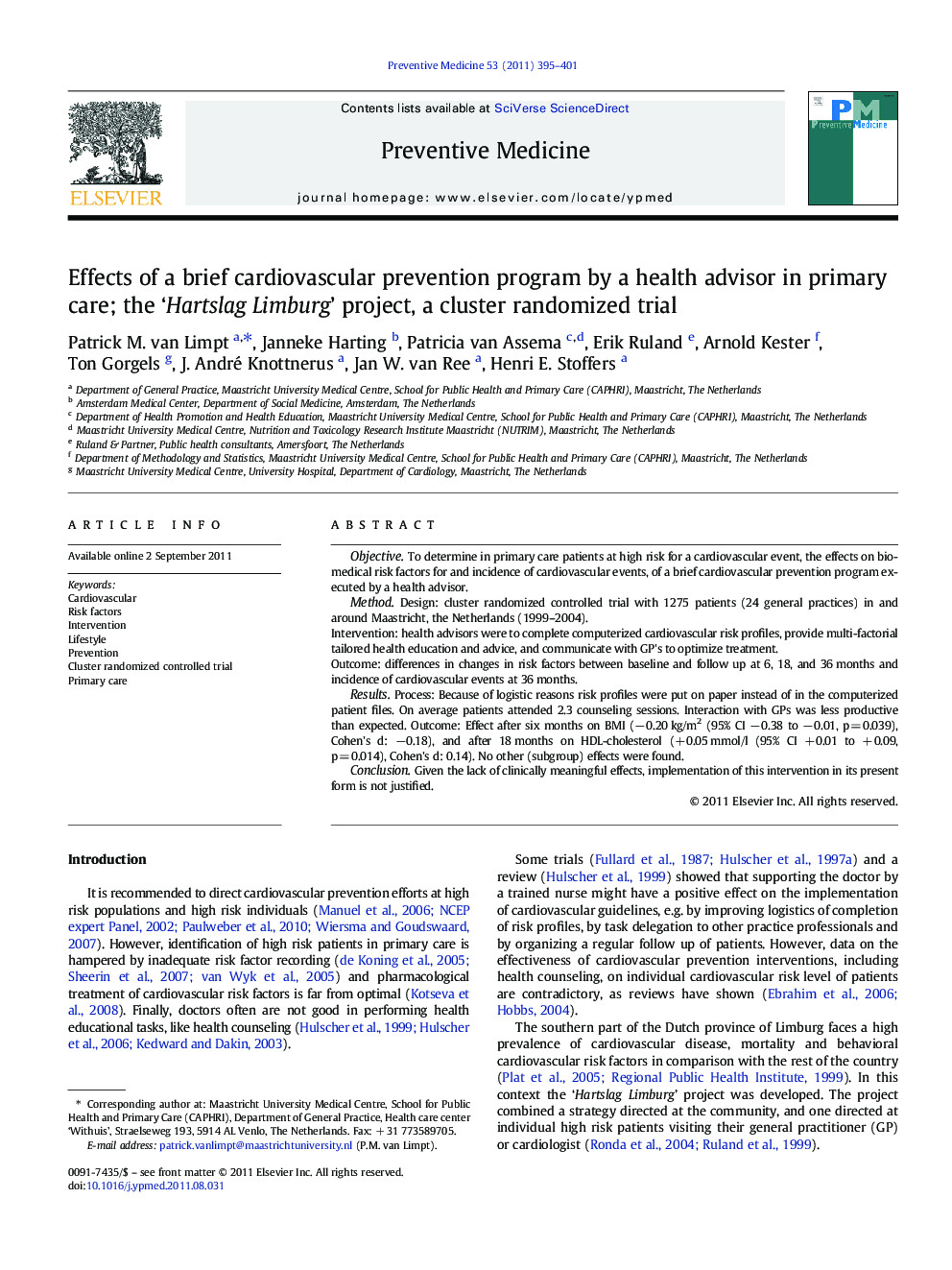| Article ID | Journal | Published Year | Pages | File Type |
|---|---|---|---|---|
| 3100856 | Preventive Medicine | 2011 | 7 Pages |
ObjectiveTo determine in primary care patients at high risk for a cardiovascular event, the effects on biomedical risk factors for and incidence of cardiovascular events, of a brief cardiovascular prevention program executed by a health advisor.MethodDesign: cluster randomized controlled trial with 1275 patients (24 general practices) in and around Maastricht, the Netherlands (1999–2004).Intervention: health advisors were to complete computerized cardiovascular risk profiles, provide multi-factorial tailored health education and advice, and communicate with GP's to optimize treatment.Outcome: differences in changes in risk factors between baseline and follow up at 6, 18, and 36 months and incidence of cardiovascular events at 36 months.ResultsProcess: Because of logistic reasons risk profiles were put on paper instead of in the computerized patient files. On average patients attended 2.3 counseling sessions. Interaction with GPs was less productive than expected. Outcome: Effect after six months on BMI (− 0.20 kg/m2 (95% CI − 0.38 to − 0.01, p = 0.039), Cohen's d: −0.18), and after 18 months on HDL-cholesterol (+ 0.05 mmol/l (95% CI + 0.01 to + 0.09, p = 0.014), Cohen's d: 0.14). No other (subgroup) effects were found.ConclusionGiven the lack of clinically meaningful effects, implementation of this intervention in its present form is not justified.
► Cardiovascular prevention is far from optimal in primary care. ► Support of a nurse could be helpful in cardiovascular prevention in primary care. ► Our brief intervention with such a nurse did not lead to relevant effects.
